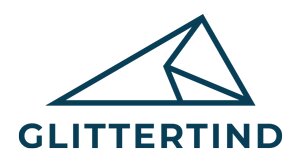Best Agriculture Lawyers in Oslo
Share your needs with us, get contacted by law firms.
Free. Takes 2 min.
List of the best lawyers in Oslo, Norway
About Agriculture Law in Oslo, Norway
Agriculture in Oslo, Norway, stands as a unique blend of traditional farming practices and modern agricultural technologies. Despite Oslo being the capital city and predominantly urban, the surrounding regions and certain areas within the city still engage in agricultural activities. This includes farming, livestock breeding, aquaculture, and horticulture. With the emphasis on sustainable practices, agriculture in Oslo is also influenced by Norway's robust regulatory frameworks designed to protect both the environment and agricultural stakeholders.
Why You May Need a Lawyer
There are several scenarios where individuals or businesses involved in agriculture in Oslo may require legal assistance:
- Land Use and Zoning Issues: Navigating the complexities of land use regulations, ensuring compliance with zoning laws, and solving disputes regarding property boundaries.
- Environmental Compliance: Ensuring agricultural activities meet environmental protection standards, dealing with issues related to pollution, waste management, and sustainable practices.
- Contracts and Agreements: Drafting, reviewing, and negotiating contracts for the sale of agricultural products, leasing of farmland, and partnerships.
- Subsidies and Grants: Assistance in applying for government subsidies or grants aimed at supporting agriculture, and ensuring compliance with their requirements.
- Employment Issues: Guidance on labor laws, resolving disputes with employees, and ensuring compliance with occupational safety standards.
- Disputes and Litigation: Representation in legal disputes, such as breach of contract, property disputes, or issues with suppliers or customers.
- Intellectual Property: Protecting innovations, trademarks, or patents related to agricultural processes or products.
Local Laws Overview
Several key aspects of local laws are relevant to agriculture in Oslo, Norway:
- Environmental Laws: Regulations are designed to protect water, soil, and air quality. Farmers must adhere to the Pollution Control Act and other regulations enforced by the Norwegian Environment Agency.
- Land Use and Planning: The Planning and Building Act covers land use planning and building permissions, ensuring sustainable and efficient land use.
- Food Safety Regulations: The Norwegian Food Safety Authority (Mattilsynet) enforces regulations to ensure the safety and quality of agricultural products.
- Animal Welfare Act: Laws to ensure the humane treatment of livestock and other animals within the agricultural industry.
- Agricultural Agreement (Jordbruksavtalen): Annual agreements between the government and farmers' associations affecting subsidies, price regulations, and market access.
- Farmland Protection: The regulations ensuring the protection of arable land to maintain agricultural production capabilities.
Frequently Asked Questions
1. Do I need special permits to start a farm in Oslo?
Yes, you may require several permits related to land use, environmental impact, and other regulatory requirements depending on the type of farming you intend to pursue.
2. What subsidies are available for farmers in Oslo?
Farmers can apply for various subsidies, including production subsidies, environmental grants, and innovation grants from the government.
3. How can I ensure my farming practices comply with environmental laws?
Consult the Norwegian Environment Agency and follow guidelines set out in the Pollution Control Act and other relevant environmental regulations.
4. What should I include in a contract when selling agricultural products?
Ensure the contract covers key details such as price, quantity, delivery timelines, quality standards, dispute resolution processes, and payment terms.
5. Can I lease farmland in Oslo?
Yes, leasing farmland is common. Ensure clear agreements on lease terms, land use, maintenance, and termination conditions to avoid future disputes.
6. What are the main laws regarding animal welfare in agriculture?
The Animal Welfare Act and regulations enforced by the Norwegian Food Safety Authority cover the ethical treatment, housing, and care of animals used in agriculture.
7. How do labor laws affect my agricultural business?
Labor laws cover working hours, wages, work conditions, and occupational safety, ensuring fair treatment and safety of agricultural workers.
8. Who regulates food safety for agricultural products?
The Norwegian Food Safety Authority is responsible for overseeing and enforcing food safety regulations in Norway.
9. How can I protect my agricultural innovations or trademarks?
Register your innovations or trademarks with the Norwegian Industrial Property Office to protect your intellectual property rights.
10. What do I do if I am involved in a legal dispute related to agriculture?
Contact a lawyer specialized in agriculture law to get advice and representation in resolving the dispute through negotiation or litigation.
Additional Resources
Here are some valuable resources and organizations related to agriculture in Oslo, Norway:
- Norwegian Agriculture Agency (Landbruksdirektoratet): Provides support and information on agricultural policies, grants, and subsidies.
- Norwegian Farmers' Union (Norges Bondelag): Advocacy and support organization for farmers.
- Norwegian Food Safety Authority (Mattilsynet): Regulates food safety, animal welfare, and plant health.
- Norwegian Environment Agency: Provides regulations and guidelines on environmental protection related to agriculture.
- Norwegian Industrial Property Office (Patentstyret): Helps in protecting intellectual property rights.
Next Steps
If you need legal assistance in the field of agriculture in Oslo, Norway, here are the steps you can take:
- Identify Your Needs: Clearly define whether you are dealing with land use issues, environmental compliance, contract disputes, or other legal concerns.
- Research: Look for law firms or legal professionals that specialize in agriculture law and have experience in Oslo, Norway.
- Consultation: Schedule a consultation to discuss your situation and get advice on the best course of action.
- Documentation: Gather all relevant documents and information related to your case to present to your lawyer.
- Follow Legal Advice: Follow the legal strategies and recommendations provided by your attorney to resolve your issues effectively.
Seeking professional legal assistance can ensure your agricultural activities comply with local laws and regulations, helping you avoid potential legal problems and focus on your farming business.
Lawzana helps you find the best lawyers and law firms in Oslo through a curated and pre-screened list of qualified legal professionals. Our platform offers rankings and detailed profiles of attorneys and law firms, allowing you to compare based on practice areas, including Agriculture, experience, and client feedback.
Each profile includes a description of the firm's areas of practice, client reviews, team members and partners, year of establishment, spoken languages, office locations, contact information, social media presence, and any published articles or resources. Most firms on our platform speak English and are experienced in both local and international legal matters.
Get a quote from top-rated law firms in Oslo, Norway — quickly, securely, and without unnecessary hassle.
Disclaimer:
The information provided on this page is for general informational purposes only and does not constitute legal advice. While we strive to ensure the accuracy and relevance of the content, legal information may change over time, and interpretations of the law can vary. You should always consult with a qualified legal professional for advice specific to your situation.
We disclaim all liability for actions taken or not taken based on the content of this page. If you believe any information is incorrect or outdated, please contact us, and we will review and update it where appropriate.













